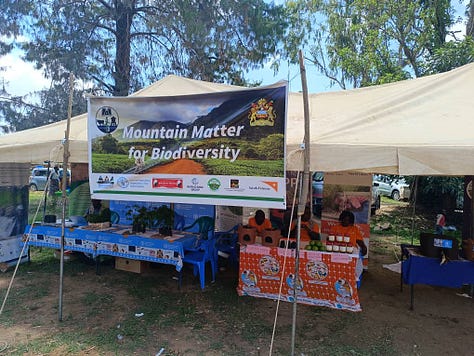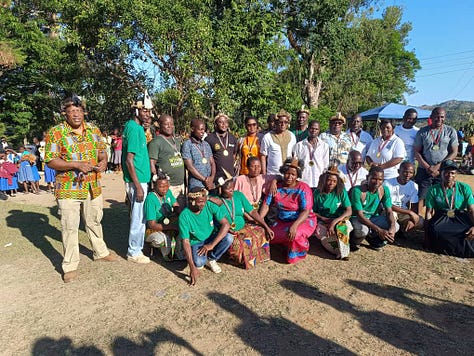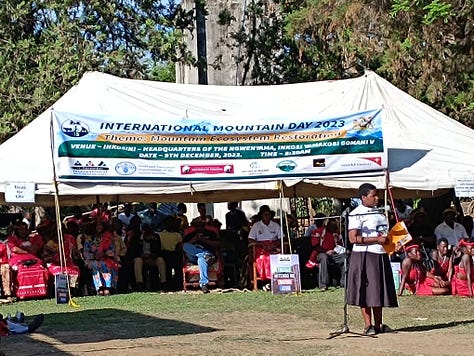MOUNTAIN DAY - Malawians celebrate significance of mountains in Ntchewu
Mountain ecosystems serve as sources of major rivers that supply essential water, crucial for sustained food and nutritional security benefiting Malawians including domestic and industrial use

NTCHEWU, Malawi (Planet Defence) - Malawians marked International Mountains Day by participating in outdoor hikes at the Ngwenyama Inkosi Ya Makosi Gomani 5 area of Ntchewu where the Inkosi also took part. This celebration is part of the global recognition of the crucial role played by these ecosystems in supporting livelihoods.
Under the theme "Restoring mountain ecosystems," the event aimed to raise awareness about the significance of mountain ecosystems. It called for nature-based solutions, implementation of best practices, and investments that enhance resilience, reduce vulnerability, and enable mountains to adapt to daily threats and extreme climatic events.
MacPherson Nthara, Deputy Director for Land Resources Department in the Ministry of Agriculture, highlighted the need to curtail human activities in mountainous ecosystems. These areas serve as sources of major rivers that supply essential water, crucial for sustained food security benefiting Malawians.
Nthara addressed participants during Saturday's commemoration in Ntcheu, emphasizing, "Degraded mountains continue to pose a threat to the country's agricultural sector, which serves as its economic backbone."
Charles Mukiwa, Country Director for Emmanuel International Malawi, pledged support by providing tree seedlings to local communities surrounding degraded landscapes. This effort aims to aid in ecosystem restoration.
Mtheto Lungu, Coordinator of the Hill Climbers Club, a fitness group involved in hiking activities for wellness, stated, "Trees deserve protection. We will climb to commemorate International Mountain Day at Ngwenyama headquarters in Ntchewu."






According to the United Nations, mountains are natural treasures. They are home to 15 percent of the world's population and host approximately half of the world's biodiversity hotspots.
These areas provide freshwater for everyday life to half of humanity, supporting agriculture, clean energy, and medicinal supplies.
However, mountains face threats from climate change, overexploitation, and contamination, escalating risks for both people and the planet. As global climate warm, mountain glaciers melt, impacting freshwater supplies downstream.
This situation poses greater challenges for mountain-dwelling populations, some of whom are among the world's poorest, in their struggle for survival.



